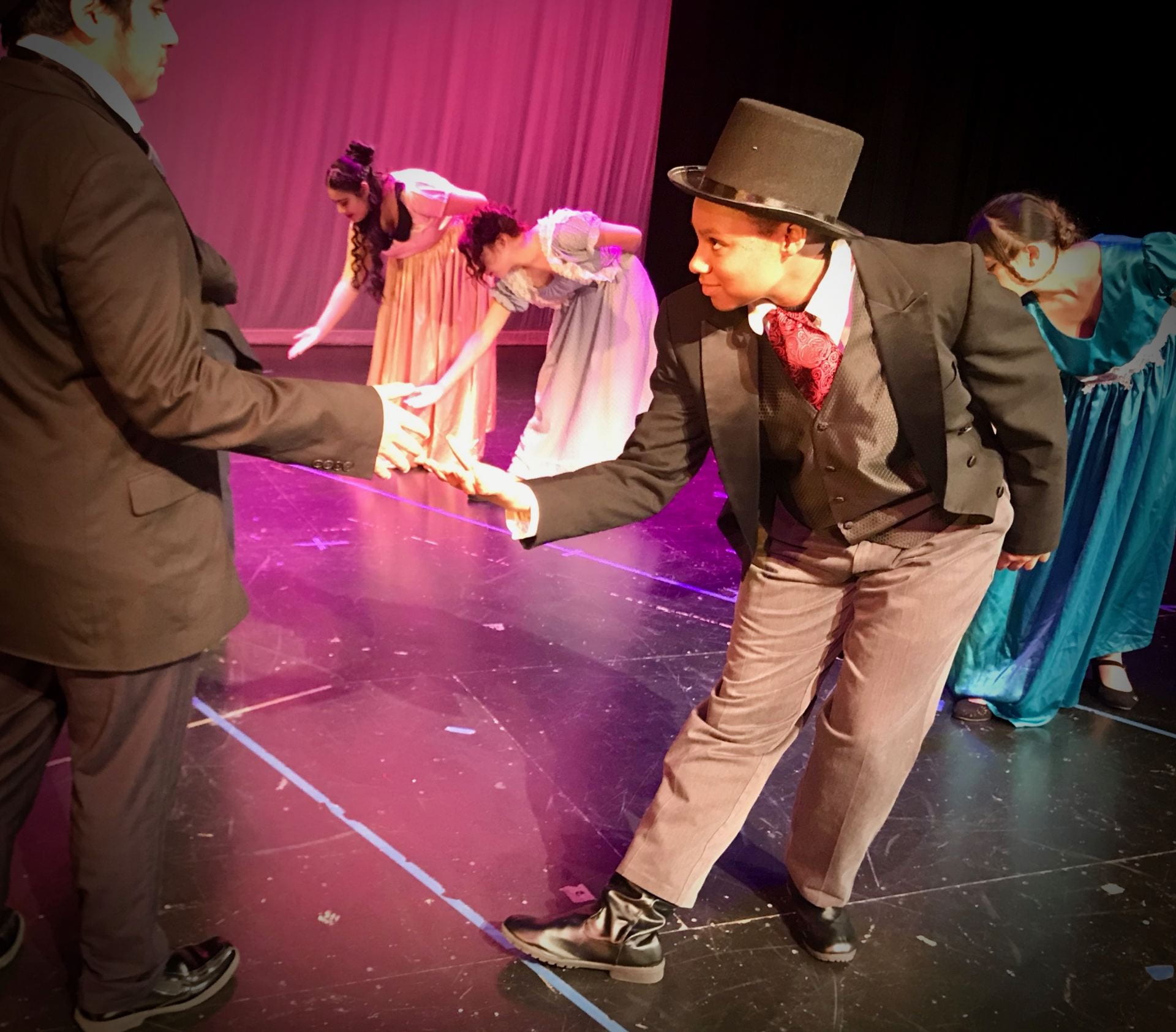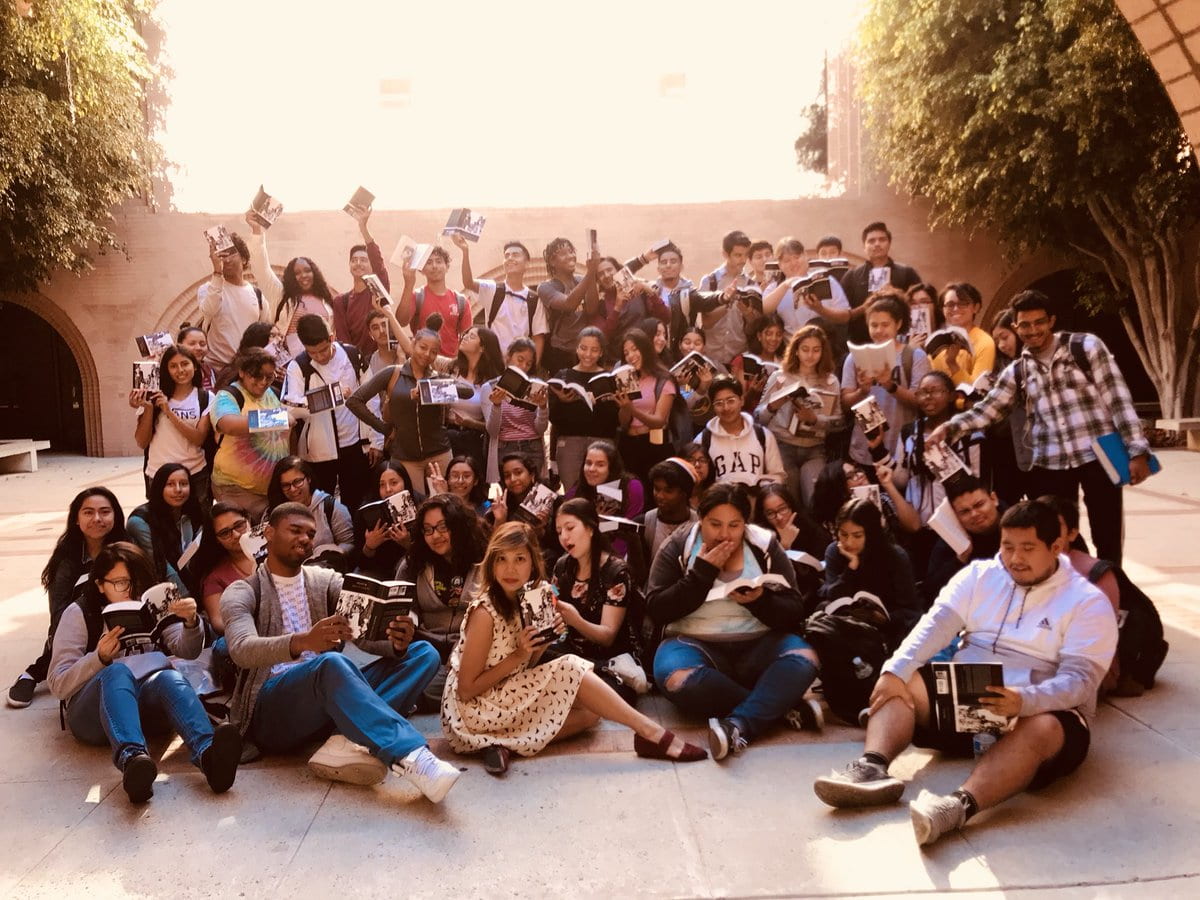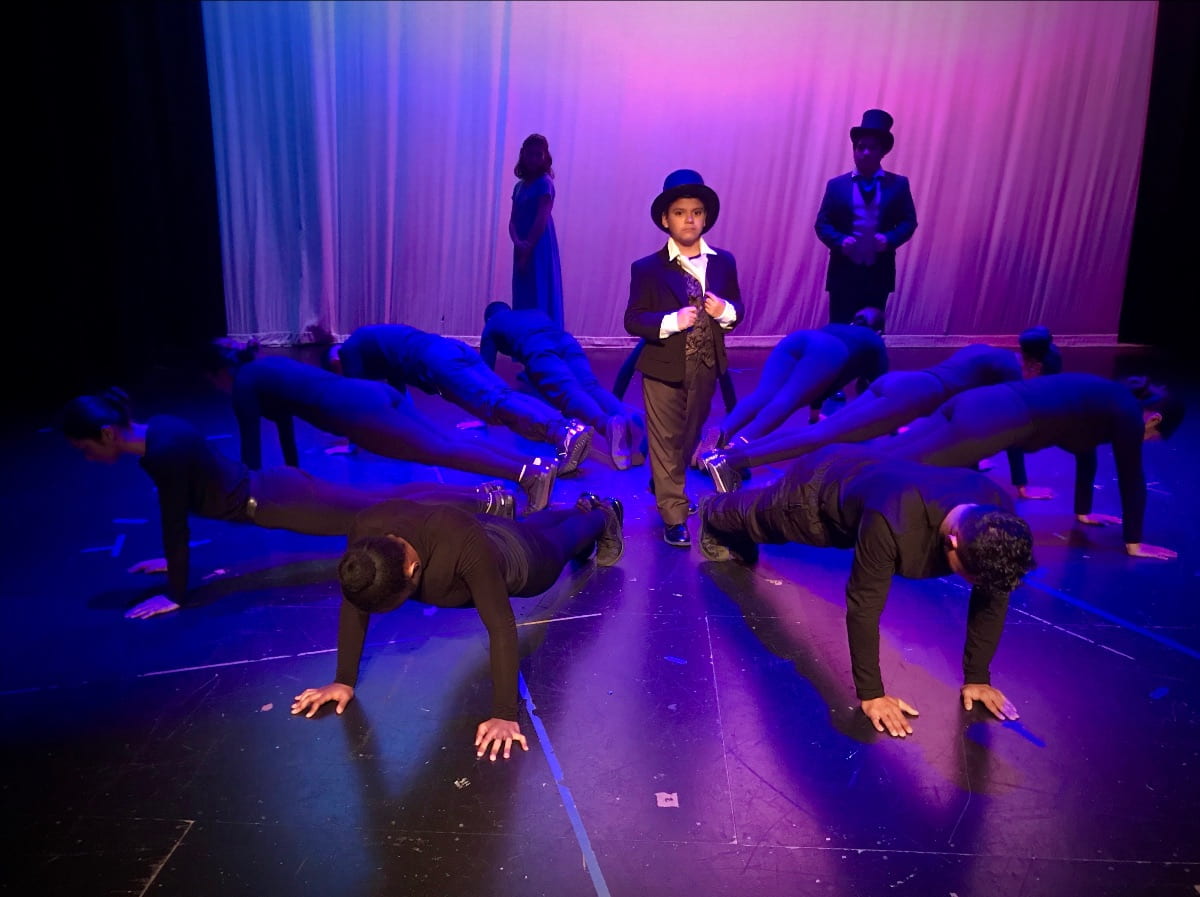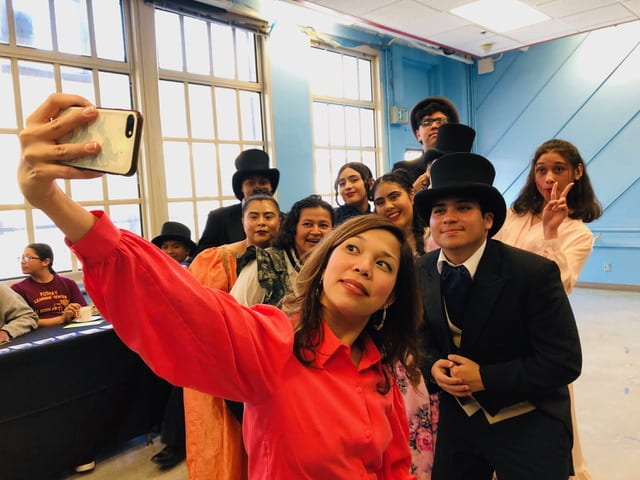What Are LitLabs?
LitLabs is a public humanities project hub fusing visual performing arts and site-specific research with the study of literary texts, in order to document, animate and uplift the life-worlds of communities who interpret them. Founded and directed by Dr. Jacqueline Jean Barrios, publicly-engaged scholar of literature and urbanism, and former public school English teacher, LitLabs blends traditional literary studies with the emerging field of urban humanities, an interdisciplinary approach to spatial research blending methods from architecture, urban studies and the humanities. LitLabs’ first projects are the subject of the book project, Dear Charles Dickens, Love South LA, about the ways the project centered the history and daily life of South LA teens through leading them in creative engagements with the 19c long-form novel. Some recent projects include:
LA 1992/London 1780, a sonic and visual performing arts project blending the study of two urban riots, one from historical fiction, Charles Dickens’ Barnaby Rudge, and the other from students’ own neighborhoods, the LA 1992 uprising. Inspired in part by London-based ‘zine artist and psychogeographer Laura Ford’s work, the project uses sound scavenging, album production, mapmaking, exhibitions as critical strategies of placemaking.
LA Copperfield, a production using live theater, dance, music and students’ own retrospections in a unique adaptation of Charles Dickens’ bildungsroman, with an accompanying exhibition, LA Copperfield: The Fotonovela Edition featuring ten photo-based that relocated David’s story to their neighborhoods, reimagining the places of Charles Dickens’ novel in their own city.
Dear Iola, Love South LA – a digital film festival created within a year (2020) of historic upheaval, based on a study of Iola Leroy, a novel by one of France E.W. Harper, one of the foremost Black woman authors, poets and activists of the 19c. Taking experimental documentaries (Sophia Nahli Allison, A Love Song For Latasha; Wexler AC’s Cinetracts 2020) as inspiration, students translated Harper’s 19c media formations (poetry, oration, novel) into films about racial uplift and Black love.





Jacqueline Barrios
 Jacqueline Barrios is an Assistant Professor at the Department of Public & Applied Humanities at the University of Arizona. She studies the global 19th century, literature, and the city, which she extends in interdisciplinary, socially engaged projects, initiatives and courses within the public humanities. Her current scholarship investigates London-Pacific trans-urban imaginaries—geographies of East Asian Pacific Rim entanglement with the British capital. She has written about scavengers, servants and other minor figures and is tracing these figural tropes in linked urban contexts, as well as experimental pedagogies in urban sound scavenging, materialist poetics and the novel through methods gleaned from material and archival practices of authors and artists.
Jacqueline Barrios is an Assistant Professor at the Department of Public & Applied Humanities at the University of Arizona. She studies the global 19th century, literature, and the city, which she extends in interdisciplinary, socially engaged projects, initiatives and courses within the public humanities. Her current scholarship investigates London-Pacific trans-urban imaginaries—geographies of East Asian Pacific Rim entanglement with the British capital. She has written about scavengers, servants and other minor figures and is tracing these figural tropes in linked urban contexts, as well as experimental pedagogies in urban sound scavenging, materialist poetics and the novel through methods gleaned from material and archival practices of authors and artists.
As a member and affiliate fellow of UCLA’s Urban Humanities Initiative, a research program linking architecture, urban planning and humanities scholars, she helped found the DIGITAL SALON, using podcasts to explore emergent research and artistic practices for remaking and reimagining the city, and is leading the formation of a global Urban Humanities Network for emerging scholars and practitioners in the field. Her interdisciplinary interests are expressed by embedding her scholarship within communities as Founder of LitLabs, a public humanities project hub fusing visual performing arts and site-specific research with the study of literary texts, in order to document, animate and uplift the life-worlds of communities who interpret them.
Dr. Barrios holds a PhD in English from the University of California Los Angeles, a Master of English from the University of California at Irvine, a Master of Education and a BA in English from the University of California at Berkeley. She has been a veteran educator at LAUSD, where she has served as a public school teacher for many years in South Los Angeles.
